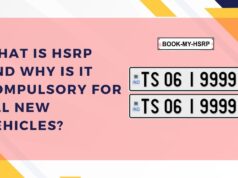Purchasing a used car can be an exciting yet challenging experience. With countless options available, finding a quality vehicle at a reasonable price requires research, strategy, and negotiation skills. Here are some expert tips to help you secure the best deal on a used car while avoiding common pitfalls.
Researching the Value of a Used Car
Before stepping onto a dealership lot or contacting a private seller, it’s crucial to understand how much a used car should cost. Utilise online tools such as Kelley Blue Book or Edmunds to estimate the car’s market value based on its make, model, mileage, and condition. Knowing this baseline value will give you an advantage during negotiations.
Planning Your Purchase
A well-thought-out plan can make all the difference. Begin by setting a realistic budget that includes not only the purchase price but also potential expenses like insurance, taxes, and maintenance. Decide on the type of car that suits your needs and lifestyle, whether it’s a fuel-efficient sedan or a spacious SUV. Research the reliability of specific models and read reviews to identify vehicles with a good track record.
Choosing the Best Platforms to Shop for Used Cars
The platform you choose to search for used cars can significantly impact your buying experience. Online marketplaces such as Autotrader, Cars.com, and Craigslist offer extensive listings from both dealers and private sellers. Certified pre-owned (CPO) programs from reputable dealerships provide peace of mind with warranties and thorough inspections. Don’t overlook local classified ads or word-of-mouth recommendations, as they can lead to hidden gems.
Negotiating with Confidence
Negotiation is often the most intimidating part of buying a used car, but it’s also where you can save the most money. Follow these strategies for different types of sellers:
- Private Sellers: Private sales often come with lower prices but require extra diligence. Be polite yet firm during negotiations, and don’t hesitate to walk away if the seller refuses to budge on an unreasonable price.
- Dealerships: Dealerships may have more room to negotiate, especially at the end of the month or year when they’re trying to meet sales quotas. Ask for detailed pricing information and look out for added fees that can inflate the final cost.
- Certified Pre-Owned (CPO) Vehicles: CPO cars are inspected and come with warranties, but they’re typically priced higher than non-certified used cars. Focus on negotiating the price by emphasising market comparisons and the car’s condition.
Avoiding Common Pitfalls
Even seasoned buyers can fall into traps when purchasing a used car. Here are a few to watch out for:
- Skipping the Inspection: Always have a trusted mechanic inspect the car before finalizing the purchase. This can save you from costly repairs down the line.
- Focusing Solely on Monthly Payments: Sellers may try to make the deal look affordable by emphasizing low monthly payments. Instead, consider the total cost of the car, including interest rates and loan terms.
- Ignoring the Vehicle History Report: Use services like Carfax or AutoCheck to check for past accidents, title issues, or odometer fraud.
Sealing the Best Deal
Once you’ve narrowed down your options and prepared for negotiation, it’s time to close the deal. Remain patient and firm, and don’t hesitate to walk away if the terms aren’t favorable. Sometimes, sellers will come back with better offers once they realize you’re serious about getting a fair price.
Conclusion
By researching thoroughly, planning your purchase, and mastering negotiation tactics, you can spot a great deal on a used car and drive away confident in your decision. Remember, a good deal isn’t just about the lowest price; it’s about finding a reliable car that meets your needs without breaking the bank.















